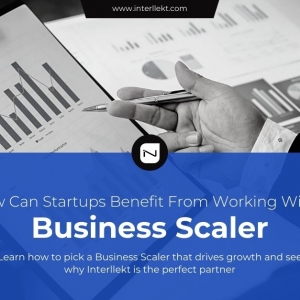A business scaler is a tool or strategy that helps companies grow efficiently. It can be a software, a service, or a method that allows us to expand our operations without losing quality. In 2025, the focus is on smart scaling, which means using technology and data to make better decisions. By understanding what a business scaler is, we can better choose the right one for our needs.
Why Do We Need a Business Scaler for Our Startup?
Our startups start small, but growth brings big changes. Without a Business Scaler, we might struggle with too many tasks or slow processes. It helps us handle more work efficiently, like automating orders or tracking progress. In 2025, with economic shifts, we see many startups failing without proper scaling help.
Evaluating Market Trends in 2025
Current events show that startups need adaptable Business Scalers to thrive in uncertain times. With rising inflation, supply chain issues, and digital transformation, flexibility is critical. For example, AI-driven platforms are helping small companies track customer behavior and predict market trends. Choosing a Business Scaler that adapts to such changes can protect us from sudden market shifts.
Focusing on Customer Experience
Customer experience is vital for growth. In 2025, businesses that prioritize customer satisfaction will thrive. We should choose business scalers that enhance our customer interactions. For example, using a customer relationship management (CRM) system can help us track customer interactions and improve our service. By focusing on customer experience, we can build loyalty and encourage repeat business.
Comparing Popular Business Scaler Options
Startups today have many Business Scaler options, from SaaS platforms to industry-specific tools. For example, Salesforce is excellent for customer relationship management, while Trello and Asana work well for project scaling. E-commerce startups often choose Shopify, which simplifies operations and customer experience. However, the best Business Scaler for us depends on our goals and budget. Comparing features, scalability, and costs allows us to find the right fit.
Budgeting for a Business Scaler
One mistake many startups make is ignoring the cost of scaling tools. While it’s tempting to go for free or cheap solutions, not all Business Scalers can handle long-term growth. We should create a budget that considers both immediate needs and future expansion. For example, investing in cloud platforms may seem expensive initially, but they save money by reducing manual errors and downtime.
Exploring Strategic Partnerships
Strategic partnerships can accelerate our growth. Collaborating with other businesses can open new markets and customer segments. In 2025, we should consider business scalers that facilitate partnerships. For example, co-marketing initiatives can help us reach new audiences without significant investment. By exploring partnerships, we can expand our reach and resources.
Investing in Workforce Development
Our team is our most valuable asset. As we scale, investing in workforce development is essential. In 2025, businesses that prioritize employee training and development will succeed. We should choose business scalers that offer training resources or support. For instance, platforms that provide online courses can help our team acquire new skills. By investing in our workforce, we can enhance productivity and innovation.
Adapting to Market Changes
The business landscape is constantly changing. In 2025, we must be adaptable to stay relevant. We should choose business scalers that allow us to pivot quickly. For example, using agile project management tools can help us respond to market demands efficiently. By being adaptable, we can seize new opportunities and mitigate risks.
Financial Implications
Scaling a business often requires financial investment. In 2025, we should be mindful of the financial implications of our choices. We need to choose business scalers that offer flexible pricing models. For instance, subscription-based services can provide cost-effective solutions without upfront costs. By understanding the financial aspects, we can make informed decisions that support our growth.
Learning from Successful Examples
Looking at successful companies can provide valuable insights. For instance, many startups have successfully scaled by leveraging technology and focusing on customer experience. Companies like Zoom and Shopify have thrived by adapting to market needs and using data-driven strategies. By learning from these examples, we can identify best practices that align with our growth goals.
Conclusion
Scaling a startup requires vision, the right tools, and a reliable Business Scaler. We must focus on adaptability, automation, and industry-specific solutions to achieve lasting growth. With market challenges and technological changes in 2025, startups need expert guidance to avoid costly mistakes. That’s where Interllekt comes in. Interllekt provides tailored Business Scaler solutions designed for startups. By partnering with Interllekt, we can scale confidently, build sustainable success, and stay ahead in today’s competitive business world.








